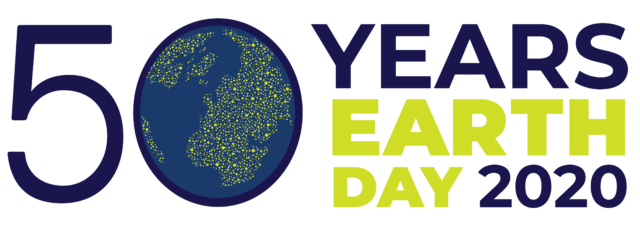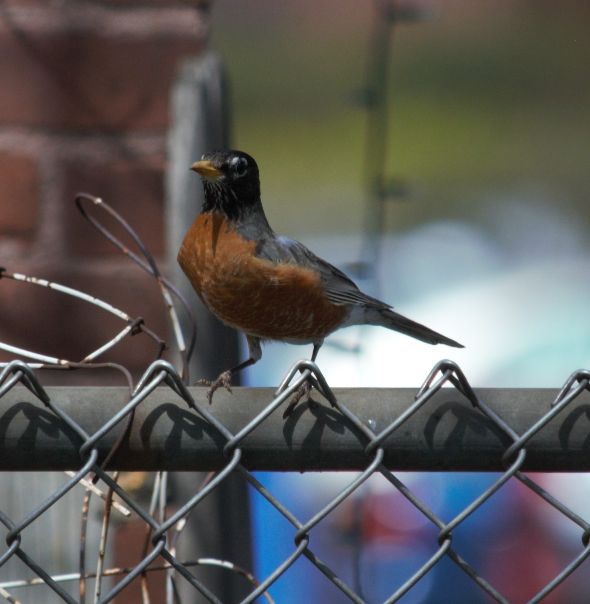A few months ago when I thought about how I might celebrate the 50th anniversary of Earth Day, it did not occur to me that I, and many others, would be forbidden to report to work. This has created the opportunity for more learning and doing. In honor of Earth Day, Real Hartford will have one week of treehugging, dirt worshipping posts.

That treehugging and dirt worshipping aside, prioritizing the environment is selfish and practical. I selfishly want a safe habitat, and I am practical in knowing that another suitable one (AKA some other planet we have yet to discover) is too far from us to be of any use to humans alive right now, and those closer would need a lot of work to be made livable. To quote Neil deGrasse Tyson, “I’m not burning my ass on Venus.”

Although it may be an unpopular opinion at the moment, quality of life is as important as life itself. Having an ailing planet that can technically support us (kinda sorta) is not the same as having one on which we are holistically, comprehensively healthy and nourished.
Scientists are learning more about the origins and transmission of Covid-19 every day, but this season’s dumpsterfire is not the only dumpsterfire in town.
As the World Health Organization (WHO) puts it, “Today, worldwide, there is an apparent increase in many infectious diseases, including some newly-circulating ones (HIV/AIDS, hantavirus, hepatitis C, SARS, etc.). This reflects the combined impacts of rapid demographic, environmental, social, technological and other changes in our ways-of-living. Climate change will also affect infectious disease occurrence.” Malaria, responsible for 400,000 deaths annually — 94% of those deaths occur in sub-Saharan Africa and more than two-thirds of those deaths are of children under age five — is among those that scientists see linked with climate conditions: “There is much evidence of associations between climatic conditions and infectious diseases. Malaria is of great public health concern, and seems likely to be the vector-borne disease most sensitive to long-term climate change. Malaria varies seasonally in highly endemic areas.”
To put that into perspective, as of publication, there have been an estimated upwards of 175,000 deaths worldwide due to Covid-19. That’s nothing to sneeze at, but let’s be real for a moment — if you are living in the United States, it’s possible you did not know people were still dying of malaria or at a rate that is — at least at the moment — double, each year, what we have seen so far from the novel coronavirus.
We might not think about malaria in the United States, but other vector-borne diseases can be found right here in Connecticut, including Lyme and West Nile. Those don’t have the dramatic fatalities, yet anyone who has dealt with Lyme disease can tell you that the experience is not sunshine and rainbows.
As the CDC explains, it’s not just more of those rotten ticks and mosquitoes we have to worry about when it comes to climate impacting health.
Air pollution contributes to asthma.
People with moderate to severe asthma may be at higher risk of experiencing severe illness resulting from Covid-19.
Air pollution has been linked to 7 million deaths annually, worldwide.
The list goes on and on.
There is no time left to deny that our climate has changed and continues to do so, and it’s already impacting us, here, in the United States. It’s not a problem way over somewhere else. It’s there, but also, it’s here. It’s been here.
Is living in shutdown mode something we are willing to do for the rest of our time on Earth? Is that living?
That’s what we need to decide as we think about our next moves. Is “back to normal” the direction we want to move in, or should we strive for getting back — way back — to something far more compatible with health and life?
50 Years of Earth Day: Why Bother?
A few months ago when I thought about how I might celebrate the 50th anniversary of Earth Day, it did not occur to me that I, and many others, would be forbidden to report to work. This has created the opportunity for more learning and doing. In honor of Earth Day, Real Hartford will have one week of treehugging, dirt worshipping posts.
That treehugging and dirt worshipping aside, prioritizing the environment is selfish and practical. I selfishly want a safe habitat, and I am practical in knowing that another suitable one (AKA some other planet we have yet to discover) is too far from us to be of any use to humans alive right now, and those closer would need a lot of work to be made livable. To quote Neil deGrasse Tyson, “I’m not burning my ass on Venus.”
Although it may be an unpopular opinion at the moment, quality of life is as important as life itself. Having an ailing planet that can technically support us (kinda sorta) is not the same as having one on which we are holistically, comprehensively healthy and nourished.
Scientists are learning more about the origins and transmission of Covid-19 every day, but this season’s dumpsterfire is not the only dumpsterfire in town.
As the World Health Organization (WHO) puts it, “Today, worldwide, there is an apparent increase in many infectious diseases, including some newly-circulating ones (HIV/AIDS, hantavirus, hepatitis C, SARS, etc.). This reflects the combined impacts of rapid demographic, environmental, social, technological and other changes in our ways-of-living. Climate change will also affect infectious disease occurrence.” Malaria, responsible for 400,000 deaths annually — 94% of those deaths occur in sub-Saharan Africa and more than two-thirds of those deaths are of children under age five — is among those that scientists see linked with climate conditions: “There is much evidence of associations between climatic conditions and infectious diseases. Malaria is of great public health concern, and seems likely to be the vector-borne disease most sensitive to long-term climate change. Malaria varies seasonally in highly endemic areas.”
To put that into perspective, as of publication, there have been an estimated upwards of 175,000 deaths worldwide due to Covid-19. That’s nothing to sneeze at, but let’s be real for a moment — if you are living in the United States, it’s possible you did not know people were still dying of malaria or at a rate that is — at least at the moment — double, each year, what we have seen so far from the novel coronavirus.
We might not think about malaria in the United States, but other vector-borne diseases can be found right here in Connecticut, including Lyme and West Nile. Those don’t have the dramatic fatalities, yet anyone who has dealt with Lyme disease can tell you that the experience is not sunshine and rainbows.
As the CDC explains, it’s not just more of those rotten ticks and mosquitoes we have to worry about when it comes to climate impacting health.
Air pollution contributes to asthma.
People with moderate to severe asthma may be at higher risk of experiencing severe illness resulting from Covid-19.
Air pollution has been linked to 7 million deaths annually, worldwide.
The list goes on and on.
There is no time left to deny that our climate has changed and continues to do so, and it’s already impacting us, here, in the United States. It’s not a problem way over somewhere else. It’s there, but also, it’s here. It’s been here.
Is living in shutdown mode something we are willing to do for the rest of our time on Earth? Is that living?
That’s what we need to decide as we think about our next moves. Is “back to normal” the direction we want to move in, or should we strive for getting back — way back — to something far more compatible with health and life?
Related Posts
A Thing of Beauty
Hartford Rising to Create a Community Bill of Rights
Lend me Some Sugar, I am Your Neighbor